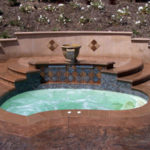Note: this post is more of a Bible study than most. If you are student of Scripture, then I would like your feedback on this. The perspective I present below is not the traditional evangelical view with which I grew up and in which I am trained, so I would like to hear from both my evangelical friends (who are likely to disagree) and with my friends from other theological backgrounds.
12 For the word of God is living and active, sharper than any two-edged sword, piercing to the division of soul and of spirit, of joints and of marrow, and discerning the thoughts and intentions of the heart. 13 And no creature is hidden from his sight, but all are naked and exposed to the eyes of him to whom we must give account. (Hebrews 4:12-13, ESV)
How do these oft-memorized verses about “the word of God” fit with the themes of entering His rest, of belief and obedience? And how do these verses connect those themes to the following passage about Jesus being the great high priest?
“The word” in verse 12 here is most often understood to be God’s recorded word, the Scripture; i.e., the Bible: God’s word (and words) revealed through His prophets, His Son, and the apostles; and written down and canonized.
This seems a too-limited view, however, in light of the words used and the context following. Certainly Scripture is sharp and piercing; it reveals our thoughts and intentions, shows whether we are truly obeying or merely acting. Yet this does not satisfy the descriptive words “living and active,” or the verb “discerning.” Verse 13, further, uses personal language: “sight” (can a written word see?); “him,” not it; and a personal direct object, “to whom” our account will be given.
I think verses 12-13 are speaking of the living Word of whom John wrote in his gospel: the Word-become-flesh, Jesus Christ. Certainly the writer here is not speaking exclusively of the written revelation (of which his own words would become a part).
Jesus Christ, the living Word of God, is alive and active, discerning, seeing, and waiting to receive an accounting of our belief or unbelief, our obedience or disobedience. It is Him to whom we owe our belief and obedience; Him to whom we will give account. He—not a book (even the Book of God)—is our great high priest, our mediator (1 Timothy 2:5) before God, and our salvation. It is through Jesus Christ that we may receive mercy when our hearts struggle to believe and grace when we disobey.

 A couple weeks ago
A couple weeks ago